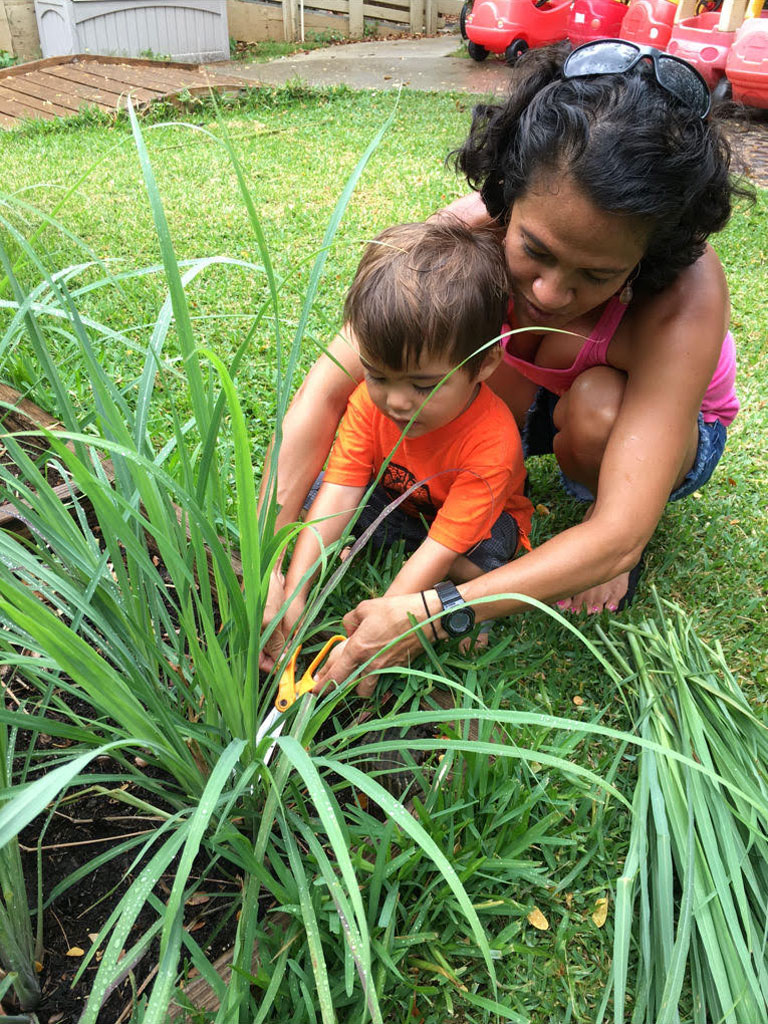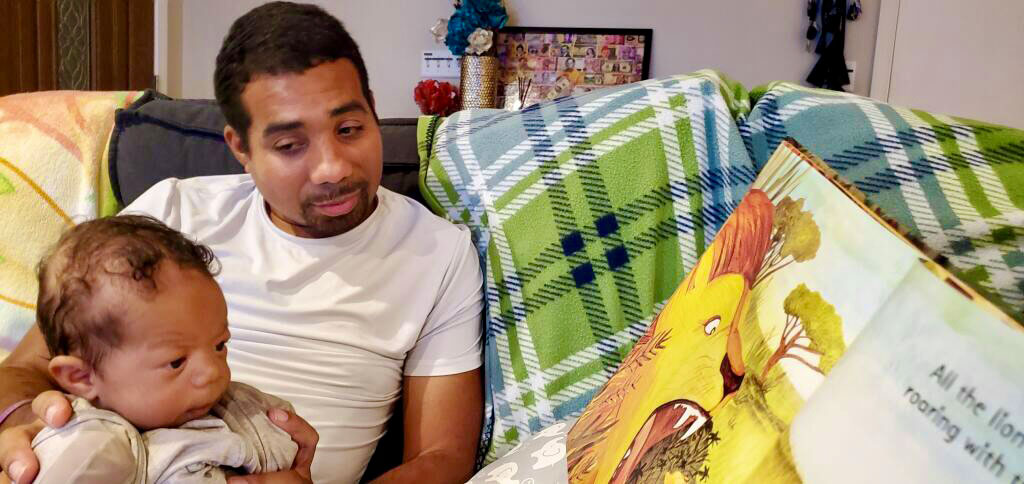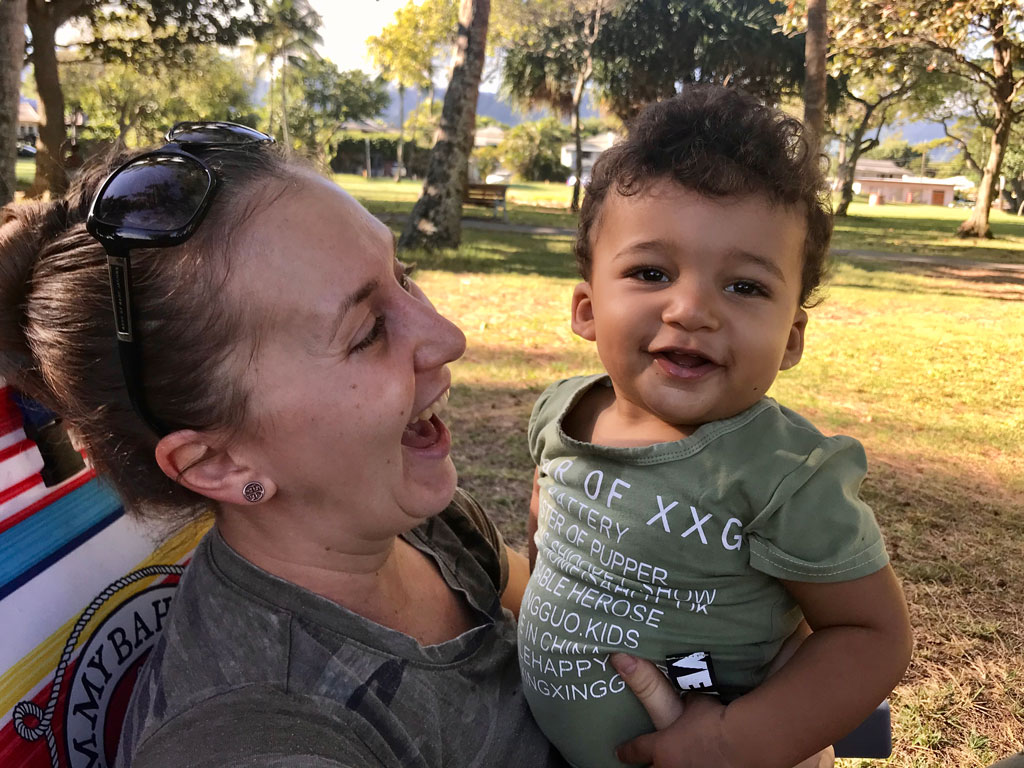by Family Hui Hawaii
From the first blinks and gestures, to cries, coos and laughter, babbling to signing and talking, your little one is learning how to communicate from the moment they are born. From birth, your baby’s brain is hardwired to develop a connection with you, their most important person in their world. Babies can’t speak words like an adult can. Crying is the most verbal way an infant can tell you what they need or how they feel – needing some cuddle time or feeling over-cuddled, being hungry or not wanting to be fed just yet, feeling overly warm or feeling too chilly, needing a diaper change, or position change. It can be tricky to figure out what a baby may need, and sometimes, babies cry for reasons we can’t figure out.
They use their senses – sight, touch, smell, taste, and hear – to learn about the world around them. They absorb a huge amount of information, especially in communication, just by listening and hearing the sounds, words, and tones you speak, and observing how you talk with them and others. By responding, holding, and tending to your baby, you are showing them that they can count on you to be there, to meet their needs and understand how they feel. Just because your baby cannot yet speak words, studies show that it’s never too early to include your child in being a part of daily language at home.

How Conversational Turns Build Babies Brains
The best time to encourage and interest your baby in listening and speaking is when they are awake and alert. Conversational turns, known as back-and-forth interactions between an adult and young child, are essential building blocks for your child’s brain. Think of a ping-pong game with two people serving and returning the ball to one another: When an adult speaks, and a child follows, whether through facial expressions, gestures, or voice, and vice versa, a “turn” is created. Meaning, an adult can “serve” a child by providing an opportunity to be part of a conversation, and the child can “return” by communicating back to the adult. An infant’s response may be non-verbal at first, with just eye contact, body movements, crying or laughter. But as a child grows, responses can include cooing, babbling, speech-like sounds, and words. Through simple, everyday, face-to-face interactions, parents can engage their child in “talk”.
Some tips to increase words and turns can happen though talking, reading or singing with your child:
- Talk aloud about what you’re doing and thinking
- Tune in, comment, and respond to what they are looking at, doing and saying
- Take turns while talking and allow yourself to wait for their response
- Repeat what your child says and then add to what they say and do
- Use lots of facial expressions and gestures
- Encourage and give positive feedback and praise
You might be thinking, how does “talk” develop your baby’s brain? Research shows that conversational turns are powerful and can have lasting, positive impacts on a child’s brain development. Regardless of a parent’s education or income level, increasing back-and-forth conversations with a young child strengthens healthy bonds and secures attachment needed for healthy social emotional growth, increases oral language and pre-literacy skills, and greater language comprehension. Conversational turns are linked to higher IQ scores by middle school, and build executive functioning skills including emotional regulation, emotional communication, and cognition.

About Family Hui Hawai’i
Family Hui Hawai’i’s peer parenting support groups (Hui) support, encourage and empower families as children’s first and most enduring teachers to thrive in all seasons of childhood. Hui increases families’ protective factors by discussing principles that empower parents and promote healthy child development through adolescence. Hui programs coordinate parenting support groups that allow families and children to come together and learn about child development, healthy relationships and mindful parenting strategies.
Visit us at Family Hui Hawaii on Facebook, Instagram, or online, to learn more about our LENA Home Hui Program, our in-person Neighborhood Hui Program, virtual Parent Café series, texting service, and family friendly community events.
LENA Home Hui
Family Hui Hawai’i offers a FREE 8-week parenting program to help support parents and caregivers in fostering parent-child attachment and engagement through language development activities. The program combines a focus on pre-literacy skill building with discussions around common challenges in parenting children under age 4. Adult participants will learn tips and strategies to increase talk through routines, activities, and playtime, how to engage and increase positive verbal interactions with children, and boost early vocabulary through reading. With the innovative use of technology, LENA’s talk pedometer helps parents and caregivers to experience first hand what an impactful role they serve as their child’s first teacher.





